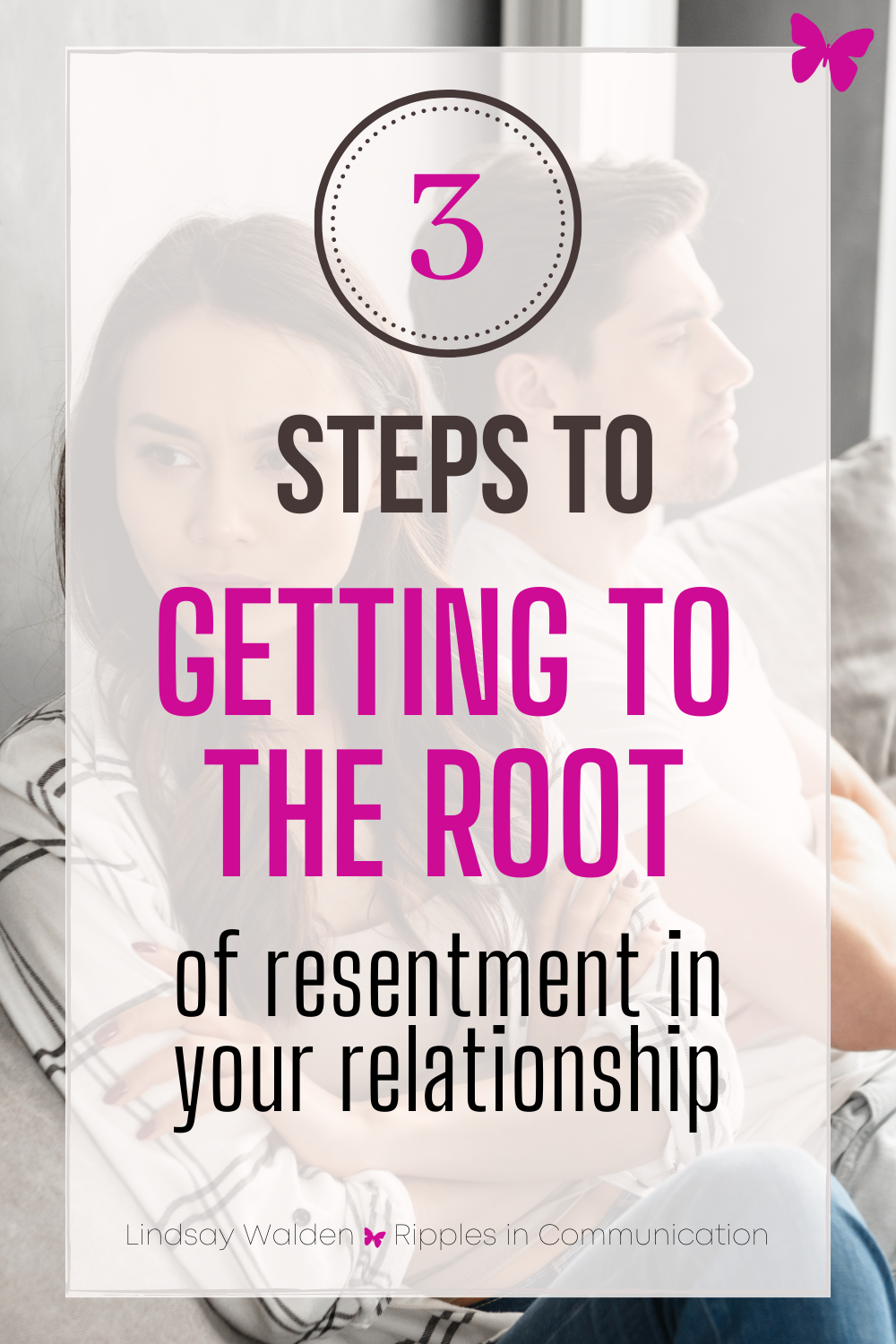How to Help Your Partner Understand Your Boundaries
Helping your partner understand your boundaries and how to interpret their reactions is a common relationship challenge I see when I am with clients. As a licensed couples and sex therapist, I've witnessed firsthand the impact of boundaries on relationships. Setting boundaries is not just about creating physical or emotional space; it’s about respecting each other's needs and fostering a nurturing environment. In this blog post, we’ll go into how boundaries influence relationships and what to do when your partner reacts to the boundaries you set.
Have you gotten my FREE Relationship Communication Guide yet? Start building an authentic, conscious, and thriving relationship with your partner TODAY. Say goodbye to misunderstandings, conflicts, and missed opportunities for a deeper connection. These are the same tips and practical advice I give to my clients every day. With this guide, you'll be equipped to navigate any communication challenge and build a strong and fulfilling bond with your partner. Click the button below to enter your email address and I will send the guide to your inbox right away!
The Significance of Boundaries
Before we dive into reactions, let’s talk about what boundaries are. Boundaries in a relationship could range from how much personal time you need, to how you expect to be spoken to. It’s essential to first identify what your boundaries are. This involves a lot of introspection and understanding of your own needs and values.
Once you're clear about your boundaries, the next step is communication. This isn’t about laying down rules for your partner, but rather expressing your needs in a way that they can understand and respect. It’s about saying, “This is important to me, and here’s why.” Remember, it's not just about stating your needs; it's also about listening to your partner's.
Partner Having Strong Reactions to Boundaries
When you set a new boundary, your partner's reaction might not always be positive. This could stem from various reasons – maybe they're not used to it, or it conflicts with their own needs. It’s crucial to understand that you cannot control how your partner feels, but you can manage how you respond and engage in a constructive dialogue.
In these situations, I often refer to The Four Agreements by Don Miguel Ruiz. These agreements focus on personal growth and freedom and can be a guide to understanding each other better. Remember, you’re not responsible for your partner's emotions, but you are responsible for respecting them.
Learn how to handle your partner’s reactions when you set boundaries. Understand the deeper meaning behind these reactions and how to address them. Dive in for expert tips on managing reactions!
The Issue Is Usually Much Deeper
Often, a partner's negative reaction to a boundary isn't about the boundary itself. It’s about something deeper. This is what I call "the thing beneath the thing." It’s essential to explore these underlying issues, which often involve unmet needs or expectations.
Resentment can be a common reaction to boundaries. It usually indicates that something in the relationship needs attention.
Ask yourself and your partner some questions:
Are there unmet needs in the relationship?
When was the last time you both checked in with each other’s feelings?
Is the resentment a direct reaction to the boundary, or is it something deeper?
Boundaries can sometimes bring underlying issues to the surface. It's important to distinguish between genuine resentment and the natural adjustment period to a new boundary. Remember, just because someone is upset, doesn’t mean you shouldn’t have set a boundary.
Moving Forward: Getting Your Relationship Back on Track
When resentment lingers in a relationship, it's a signal that deeper issues need to be addressed. This phase is critical for the health and longevity of your partnership. Here's a closer look at how to effectively manage and move beyond this challenging stage.
Dive into the importance of empathy in understanding your partner's needs and boundaries. Get insights on building a supportive and empathetic relationship. Read on to deepen your relationship understanding!
3 Steps to Addressing the Root Cause of Resentment in Relationships
Open Communication: The first step in overcoming resentment is engaging in open, honest conversations. It's essential to create a safe space where both partners feel heard and respected. Start the conversation with empathy and a willingness to understand each other's perspectives.
Active Listening: During these discussions, practice active listening. This means truly hearing your partner’s concerns without immediately jumping to defense or conclusions. Acknowledge their feelings, and try to understand the reasons behind their reactions to your boundaries.
Expressing Your Own Feelings: While it’s important to listen, you also need to express your own feelings. Explain why you set certain boundaries and how your partner’s reaction affects you. Be clear, but speak from a place of love and respect, not blame.
If you suspect that resentment is more than just a reaction to a boundary, it's time to address those deeper issues. This could mean having difficult conversations or seeking help from a therapist.
Unchecked resentment can lead to bitterness, which is why it’s crucial to address issues early on. Open, honest, and direct conversations are key. If you’re struggling to start this conversation and aren't ready to see a therapist, consider using resources like my relationship communication guide, which offers practical steps to facilitate healthy communication, plus since it's written by me, it's like having a couple's therapist in your back pocket!
Conclusion
Setting boundaries is an act of self-care and respect for your relationship. It’s not about restriction, but about creating a healthy, fulfilling partnership. Remember, every relationship is a work in progress, and navigating these challenges together can lead to a stronger, more intimate connection. If you need more guidance, don’t hesitate to reach out for professional help or utilize resources like my communication guide. Here's to building thriving relationships based on mutual respect and understanding!
Strengthen your relationships with these 10 powerful daily affirmations. Embrace the importance of setting and respecting boundaries for a healthier, more fulfilling partnership.







